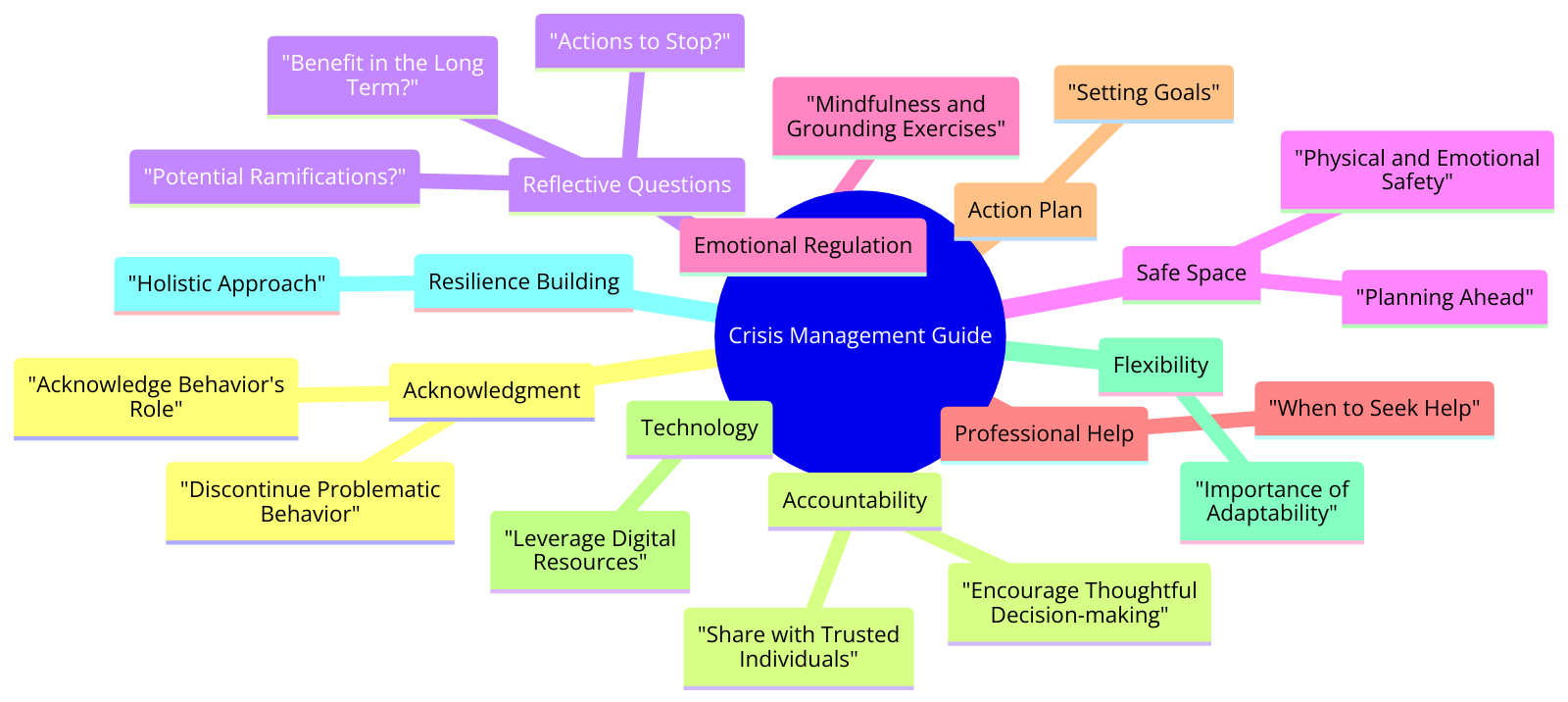
Life can sometimes feel spiraling out of control, leading to overwhelming feelings of uncertainty and powerlessness. This article aims to provide individuals facing non-life-threatening crises with a structured approach to regain a sense of safety and control. By discussing key steps such as discontinuing problematic behavior, identifying safe spaces, and leveraging professional help, this guide offers actionable advice for crisis management.
Life is unpredictable, and crises are an unfortunate but inevitable human experience. Whether you’re grappling with issues related to personal relationships, finances, or existential dilemmas, the accompanying feelings of being overwhelmed and out of control are universal. While it’s normal to experience these emotions, navigating through crises in a way that helps you regain control is possible. This article will explore key strategies to guide you through these difficult times.
Discontinue the Behavior
The Importance of Acknowledgment
Often, the root of our crises lies in our behaviors or impulses. For example, if you’re struggling with a gambling addiction, the issue isn’t solely the loss of money; it’s also tied to the irrational belief that betting more will yield better outcomes. The first step to regaining control is acknowledging the behavior contributing to the crisis.
The Power of Accountability
To halt problematic behavior, consider sharing your struggles with someone you trust, like a friend or family member. Being accountable to someone else can deter rash actions and encourage thoughtful decision-making.
Reflective Questions
Before acting impulsively, pause to ask yourself three essential questions:
- How will this behavior benefit me in the long term?
- What are the potential ramifications of continuing this behavior?
- What actions can I take to stop?
Identify a Safe Space
Physical and Emotional Safety
After discontinuing the problem behavior, the next step is to identify a safe space. This space can be either physical, like a peaceful park or a cozy café, or emotional, like the company of supportive friends or family.
Planning Ahead
Pre-crisis planning is invaluable. Knowing where you can feel safe and who can offer emotional support can make a significant difference when a crisis occurs. It’s imperative to practice locating and utilizing your safe space before a crisis arises. This will enable you to develop a sense of familiarity and comfort with your surroundings to quickly turn to this space during difficult times. Additionally, it’s crucial to identify the people in your life who can provide the support and guidance you require during challenging moments.
Emotional Regulation Techniques
Mindfulness and Grounding
Engaging in emotional regulation techniques like deep breathing, grounding exercises, and mindfulness meditation can help restore composure. These practices facilitate an objective assessment of the situation and better decision-making.
Involve Professionals
When to Seek Help
There are instances where the guidance of therapists, counselors, or financial advisors may be necessary. Professional input can offer coping strategies and guidance tailored to individual circumstances.
Create an Action Plan
Setting Goals
Develop a concrete action plan to give you a sense of direction. Identify achievable goals, outline the steps needed to reach these objectives, and anticipate potential challenges.
Leverage Technology
Digital Resources
Various apps and online platforms offer cognitive-behavioral therapy (CBT) techniques, journaling features, or mood and behavior tracking. These resources can serve as useful supplements to traditional forms of help.
Stay Flexible
The Importance of Adaptability
Crises are dynamic, and even the best-laid plans may require adjustments. Flexibility and adaptability are crucial in effectively managing crises.
Long-Term Resilience Building
A Holistic Approach
Long-term practices like regular exercise, a balanced diet, and a robust support network can lay a strong foundation for resilience, aiding in more effective future crisis management.
Conclusion
Crises are daunting but also an opportunity for growth and learning. Remember that setbacks are merely lessons in disguise. With thoughtful planning, a robust support system, and the right resources, you can navigate through crises to regain a sense of safety and control in your life.
Max E. Guttman is the owner of Mindful Living LCSW, PLLC, a private mental health practice in Yonkers, New York.
- Max E. Guttman







